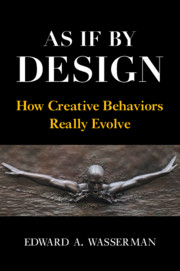Book contents
- As If By Design
- As If By Design
- Copyright page
- Dedication
- Contents
- Figures
- Acknowledgments
- Section 1 Introduction
- Section 2 The Vignettes
- Part I Sports
- Part II Medicine
- Part III Hygiene
- 13 Florence Nightingale
- 14 Taking Mental Floss to Dental Floss
- 15 A Very Close Shave
- Part IV Arts, Entertainment, and Culture
- Part V Is This Heaven? No, It’s Iowa!
- Section 3 Putting It Together
- Index
- References
14 - Taking Mental Floss to Dental Floss
from Part III - Hygiene
Published online by Cambridge University Press: 01 July 2021
- As If By Design
- As If By Design
- Copyright page
- Dedication
- Contents
- Figures
- Acknowledgments
- Section 1 Introduction
- Section 2 The Vignettes
- Part I Sports
- Part II Medicine
- Part III Hygiene
- 13 Florence Nightingale
- 14 Taking Mental Floss to Dental Floss
- 15 A Very Close Shave
- Part IV Arts, Entertainment, and Culture
- Part V Is This Heaven? No, It’s Iowa!
- Section 3 Putting It Together
- Index
- References
Summary
Florence Nightingale – widely known as the Lady with the Lamp – is internationally celebrated as the founder of modern nursing. Indeed, Nightingale instituted revolutionary hygienic reforms both during and after the calamitous Crimean War, in which more British troops died from infectious disease than from battle wounds. Far less appreciated is Nightingale’s pivotal role as an innovator in data visualization – a groundbreaking rhetorical system permitting data “to speak for themselves.” How Nightingale evolved from her privileged upbringing as the daughter of a wealthy landed family to a champion of progressive health care reform is an astonishing story – one involving a host of influential collaborators and acquaintances at the highest levels of mathematics and government. Nightingale’s passionate and persuasive powers proved highly successful in contrast to the clumsy efforts of another hygienic reformer, Hungarian physician Ignaz Semmelweis. Nightingale’s success confirms Louis Pasteur’s quotation: “chance favors only the prepared mind.”
Keywords
- Type
- Chapter
- Information
- As If By DesignHow Creative Behaviors Really Evolve, pp. 152 - 161Publisher: Cambridge University PressPrint publication year: 2021



